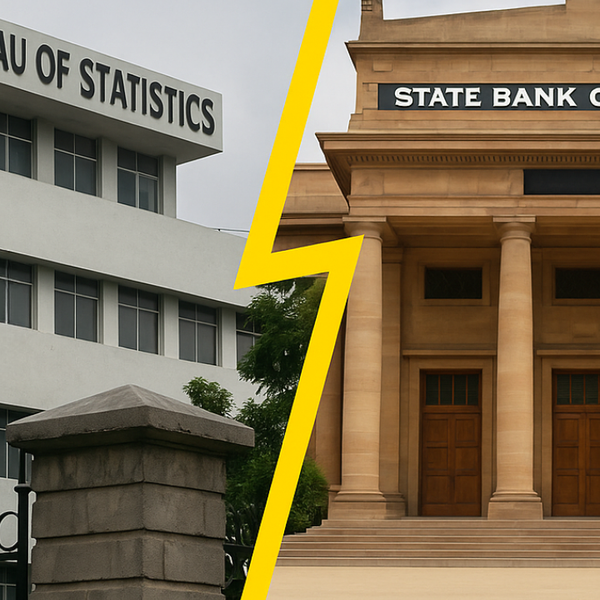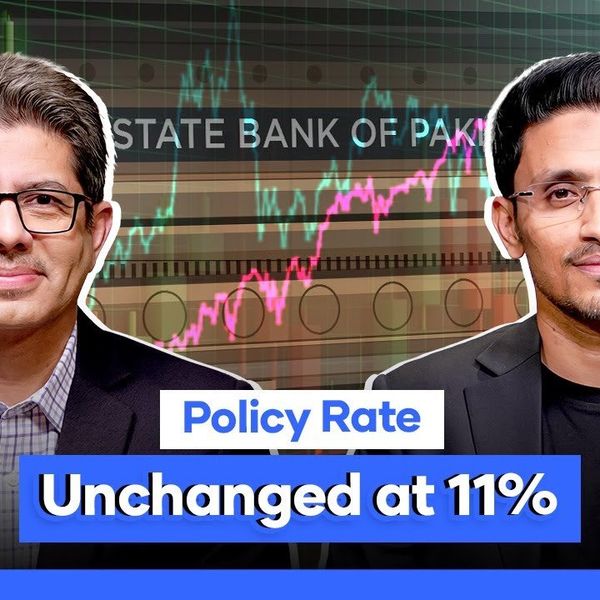Pakistan central bank tightens net on trade-based money laundering
Updated framework introduces stricter red flags, advanced analytics, and global best practices to help banks detect and prevent illicit financial flows through trade channels
Business Desk
The Business Desk tracks economic trends, market movements, and business developments, offering analysis of both local and global financial news.

Photo by Tima Miroshnichenko via Pexels
The State Bank of Pakistan (SBP) has rolled out an enhanced framework to curb trade-based money laundering (TBML) and terrorism financing (TF), warning that the misuse of legitimate trade channels poses growing threats to the integrity of the financial system.
The strengthened guidelines, issued this week, build on a 2019 framework but go further in addressing the increasingly complex tactics used by criminal networks to mask illicit financial flows. The SBP said the overhaul is driven by “evolving typologies, rapid technological changes, and international best practices”, underscoring Pakistan’s efforts to align with global anti-money laundering (AML) and countering financing of terrorism (CFT) standards.
“Trade-based money laundering has become a preferred method for criminals and terrorist financiers,” the SBP said in a statement. “Large volumes of international trade transactions provide a convenient cover for illegal financial activities.”
Red flags and new controls
The central bank listed a number of red flags that should trigger closer scrutiny by banks, known as Authorized Dealers (ADs). These include: use of shell companies or entities in high-risk jurisdictions, businesses registered at residential or mass registration addresses, lack of online presence or incoherent business websites, aggressive behavior during due diligence, inconsistencies in staffing, business operations, or payroll, and owners or managers with little knowledge of the business or adverse media exposure.
SBP is urging banks to adopt data-driven monitoring systems and advanced analytics to flag suspicious activity, while also bolstering internal controls, customer risk assessments, and employee training.
“Banks must enhance their risk management frameworks to detect abuse at every stage of a trade transaction—from customer onboarding to payment execution,” the SBP noted.
The context
The updated measures come as Pakistan continues to recover from years of heightened scrutiny by global watchdogs, including the Financial Action Task Force (FATF), which had previously placed the country on its “grey list” due to deficiencies in combating money laundering and terrorism financing.
Pakistan was removed from the FATF grey list in 2022 after a sustained reform effort. However, financial analysts say the SBP’s latest move shows the country’s regulatory regime is shifting from reactive compliance to proactive risk management.
“Trade-based money laundering is notoriously hard to detect because it often blends in with legitimate business,” said an analyst. “By tightening the net, SBP is signaling that Pakistan will not be a safe harbor for illicit finance through trade routes.”
He noted that the previous framework lacked sufficient teeth to address newer typologies, especially those involving digital channels, complex corporate structures, or cross-border shell operations.
Global alignment
Industry experts said the revised framework aligns with international norms, including those advocated by the FATF and regional financial regulators.
“It’s a necessary evolution,” said a leading analyst. “We’ve seen increasingly sophisticated methods used to launder money through trade. This update gives banks clearer expectations and stronger tools to push back.”
The SBP has not only emphasized detection and reporting, but also prevention, encouraging banks to reject transactions that cannot be reasonably justified through documentation and due diligence.
Banks will be expected to immediately begin integrating the updated guidance into their operations. SBP has called for swift implementation and promised close supervisory oversight.
While the strengthened controls may create short-term operational challenges for exporters and banks, analysts believe the long-term benefits will outweigh the costs.










Comments
See what people are discussing